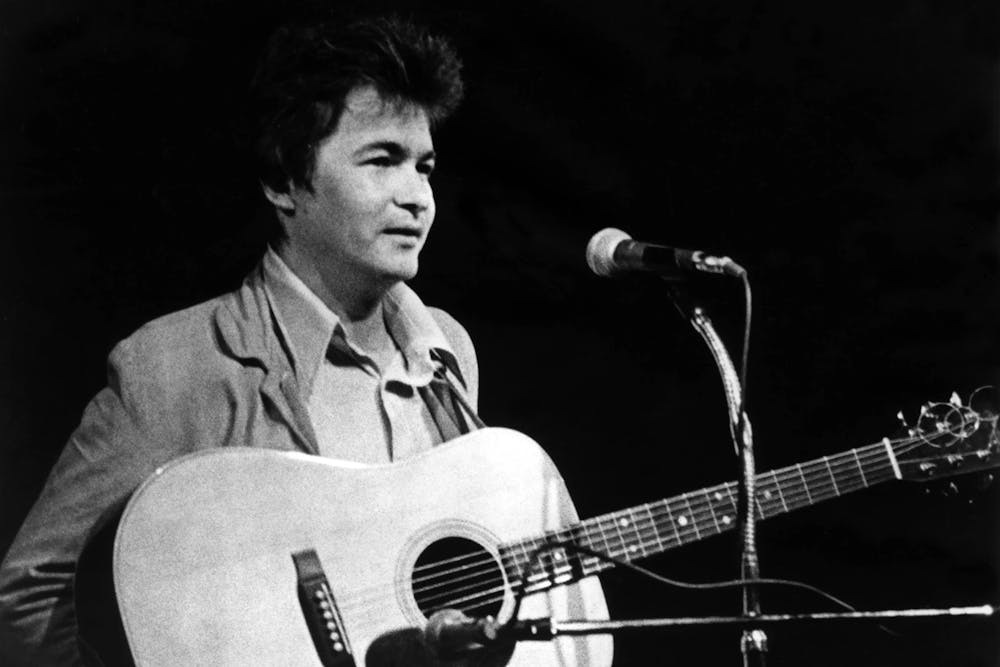On what would have been his 76th birthday, many musicians, Baby Boomer dads, and the occasional 70s Americana-Folk music enthusiast mourn John Prine: one of the most influential singer-songwriters of all time. Though his influence spans genres, inspiring artists like Bob Dylan, Kacey Musgraves, and even Roger Waters, public recognition of John Prine's name dwindles with each passing year. However, his timeless lyrics, effortless melodies, and unpretentious spirit have left an imprint on American music that will remain forever.
And as a 70s Americana-Folk music enthusiast, I'd like to celebrate Prine's birthday by revisiting and analyzing his lasting imprint. Born on October 10, 1946 in a small Illinois town, John Prine had humble beginnings, working as a mailman before being discovered in a club by Kris Kristofferson in 1971. "By the end of the first line we knew we were hearing something else," Kristofferson said of Prine. "It must've been like stumbling onto [Bob] Dylan when he first busted onto the Village scene."
That same year, the songwriter released his first self-titled album. Containing some of his most famous songs, Prine's 1971 album displays his musical versatility. Some songs are funny, others are heartbreaking, but all of the tracks contain authentic, sharp, and witty commentary inherent to Prine's style.
For instance, the second track, "Spanish Pipedream," tells the story of a dancer and a soldier, with witty lyrics like "I knew that topless lady had something up her sleeve." The lighthearted tune is followed in stark contrast by "Hello in There," a song about the loneliness that accompanies old age. "Old trees just grow stronger, and old rivers grow wilder every day," Prine sings. "Old people just grow lonesome, waiting for someone to say, 'Hello in there, hello.'"
John Prine notably used his own experience and observations in his music, making his lyricism wholly authentic. For instance, the songwriter wrote about his observations returning home after serving in the Vietnam war. In "Sam Stone," Prine painted the portrait of a veteran with "a purple heart and a monkey on his back," metaphorizing returning U.S. veterans' hardships in a society that rewards them with nothing more than empty honor. Prine specifically focused on addiction in this song, penning one of his most famous lyrics: "There's a hole in daddy's arm where all the money goes."
Also inspired by his veteran status was "Your Flag Decal Won't Get You into Heaven Anymore," which criticizes America's habit of sending soldiers off to die overseas and glorifying it as a patriotic act. He satirizes the Americans that rely on performative flag-waving for their ticket to Heaven, rebuking, "they're already overcrowded from your dirty little war."
Prine never claimed to write political songs; instead, all of his social commentaries simply came from observing the turmoil in the world around him. In an interview with Paste Magazine, Prine described the inspiration behind his songs: "I knew there were a lot of GIs out there, who came out of the war, and they weren't quite right… ["Sam Stone"]. I knew there were homes where nobody was talking to each other, which became 'Angel from Montgomery.'" According to Prine, he hoped to spark thought and discussion through his music. In 1971, this attitude led him to write about Vietnam veterans. And in 2018, it led him to write "Caravan of Fools," with lyrics that warn listeners of an underhanded group of fools attempting to take power. After performing it in an NPR Music Tiny Desk Concert, Prine chuckled and disclaimed that "any likeness to the [Trump] administration is purely accidental."
Many musicians credit John Prine's lyrics as an inspiration in their work. Bob Dylan described Prine's "beautiful songs" as "pure Proustian existentialism." Many other Americana, folk, and country musicians like Johnny Cash, Kacey Musgraves, and Brandi Carlile share similar sentiments. However, Prine's impact also broke out beyond the genre. In an interview, Roger Waters of Pink Floyd said no other music moves him like John Prine's. "His is just extra-ordinarily eloquent music – and he lives on that plain with Neil [Young] and Lennon."
Despite the admiration shared by many famous artists, Prine's popularity in the music sphere has dwindled over the years, especially since his death in April 2020. Still, his impact lives on in the music he inspired, the stories he told, and the good he brought to this world (and by the admiration of the 70s Americana enthusiast).
Happy Birthday, John Prine.





